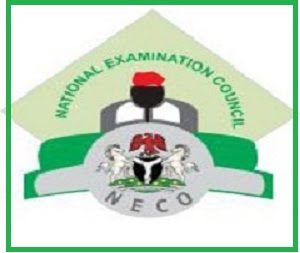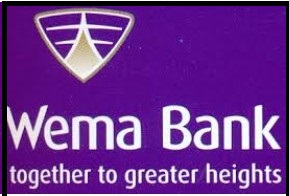Current FCSC general knowledge questions for aptitude test in Nigeria are general knowledge test questions in Nigeria, which include Nigeria current affairs quiz, current affairs in Nigeria today, Federal Civil Service screening promotional aptitude test questions and answers, Nigeria general knowledge questions and answers in pdf and Nigerian current affairs for job interviews. These are career based human resources management axioms.
In relation to all of these, this post brings to you assorted general and personnel human relation aptitude test questions for all purpose. It addresses issues on inefficiencies, misconduct and disciplinary matters. They are guaranteed all-time regular trending aptitude and promotional tests questions and answers.
Now let’s go through the questions answers question!
Current FCSC general knowledge questions for aptitude test in Nigeria/Federal Civil Service Aptitude Test Questions & Answers
Table of Contents
QUESTION 1
WHEN IS DISCIPLINARY PROCEDURE INITATED AGAINST AN OFFICER?
Answer:
This is initiated, when an officer is accused of wrong doing, misconduct or general inefficiency or as soon as a superior officer observes any fault or shortcoming in the work of an officer subordinate to him/her.
QUESTION 2:
DIFFERENTIATE BETWEEN GENERAL INEFFICIENCY AND MISCONDUCT?
Answer:
i. A general inefficiency consist of a series of acts of omission or incompetencies of which the cumulative effect shows that the officer is not capable of discharging efficiently the duties of the office he/she holds.
ii. Misconduct is defined as a specific act of wrong or an improper behaviour which is inimical to the image of the service and which can be investigated and proved, it can lead to termination and retirement.

Current FCSC general knowledge questions for aptitude test in Nigeria/Federal Civil Service Aptitude Test Questions & Answers
QUESTION 3:
List any 12 examples of misconduct in the civil service.
Answer:
1. Unruly behaviour
2. Disclosure of official information
3. Corruption
4. Dishonesty
5. False claim against government
6. Use of foul language
7. Falsification or suppression of records
8. Drunkenness
9. Negligence
10. Insubordination
11. Conviction for criminal offence
12. Failure to keep records
13. Absence from duty without leave
14. Engaging in political activities
15. Disobedience of lawful order such as refusal to accept posting
16. Financial embarrassment
17. Engaging in trade or business without authority on office premises or during office hours
18. Sleeping on duty
19. Seeking or soliciting the assistance of influence or proponent persons.
20. Improper dressing to office while performing official duty
21. Loitering
22. Dereliction of duties.
Question 4:
State the procedure for removing an officer for general inefficiency.
Answer:
He/she must have been:
i. warned on two or more occasion previously in writing, giving hi an opportunity to improve or offer a satisfactory explanation for his failure to perform his duties
ii. Suffered loss or deferment of his increment
iii. Given ample opportunity for improvement
iv. Given notice of termination, the period of the notice if it is decided that the officer should leave service immediately should include annual leave, which the officer is entitled.
Current FCSC general knowledge questions for aptitude test in Nigeria/Federal Civil Service Aptitude Test Questions & Answers
QUESTION 5
List any 10 disciplinary measures/actions that can be taken against an officer found guilty of general inefficiency or misconduct.
Answer:
a. Dismissal
b. Termination or retirement
c. Reduction in rank (demotion) Reduction in salary
d. Withholding or deferment of salary
e. Loss of pay/Non-payment for the corresponding days an officer Is not at his duty post without authority.
f. Surcharge
g. Interdiction
h. Suspension
i. Reprimand
j. Written warning
k. Verbal warning
QUESTION 6
Define the term Serious misconduct
Answer:
Serious misconduct is defined as a specific act of very serious wrong doing and improper behaviour which is inimical to the image of the service, it can be investigated and proven, may lead to dismissal.
Serious acts of misconduct include:
i. Falsification of records
ii. Suppression of records
iii. Withholding of file
iv. Conviction on a criminal charge
v. Absence from duty without leave
vi. False claims against government
vii. Engaging in partisan political activities
viii. Bankruptcy/serious financial embarrassment
ix. Unauthorised disclosure of official information
x. Bribery
xi. Corruption
xii. Embezzlement
xiii. Misappropriation
xiv. Violation of Oath of Secrecy
xv. Violation of Oath of office
xvi. Action prejudicial to the security of the state
xvii. Advanced fee Fraud – criminal code 419
xviii. Sexual harassment
xix. Sabotage
xx. Wilful damage of public property.
Current FCSC general knowledge questions for aptitude test in Nigeria/Federal Civil Service Aptitude Test Questions & Answers
QUSTION 7
Differentiate between Suspension and Interdiction, as disciplinary measures.
Note that Suspension and interdiction are disciplinary actions which involve stopping n officer for reporting for duty during the period he is under investigation.
Answer:
SUSPENSION: Shall apply where prima facia case, the nature of which is serious has been established against an officer; he may be stopped from carrying out the duties of his office pending investigation into the misconduct. In addition, he is denied the right o enjoying his salary and allowances during the period he is under suspension. Suspension is not synonymous with interdiction.
INTERDICTION: When a serious case that may lead to dismissal has been instituted against n officer, the permanent Secretary/Head if Extra-Ministerial office may interdict him/her on not more than half pay pending the determination of the case. When an officer is interdicted, he/she shall cease to report for duty.
QUESTION 8
Differentiate between withholding of increment and deferment of increment.
Answer:
Withholding and deferment of increment are disciplinary actions that can be taken against an officer.
a. Withholding of Increment: An increments said to be withheld when it is not granted and the affected officer remains on the same step until the next incremental date.
b. Deferment of Increment: Deferment implies that an officer’s increment is postponed from when it is due to another time. The period is fixed at the time the increment is deferred. It must not be less than three months or more than six months.
The officer retains his original incremental date for subsequent increments. An increment deferred or withheld cannot be restored with retrospect effect.
Current FCSC general knowledge questions for aptitude test in Nigeria/Federal Civil Service Aptitude Test Questions & Answers
On Federal Civil Service Aptitude Test Questions & Answers these relevant key research phrases are important:
- Civil Service Exam Questions and Answers 2015
- Public Service Rules Questions and Answers
- Promotion Examination Question
- Civil Service Commission Interview Questions
- ASCON Past Questions Pdf
- ASCON Aptitude Test
- ASCON Past Question Papers
- Nigeria Current Affairs Questions and Answers 2015 Pdf
- Nigeria Current Affairs Questions and Answers 2016/2017 Pdf
GET UPDATES:
You are advised to always come to this site, if possible through www.completefmc.com, for your updates. If you follow/like us on any of our social media you will be sure of your updates. Submit your email address on the follow by email tab on this page to ensure such regular updates too.
Also Read the following:
Current FCSC general knowledge questions for aptitude test in Nigeria/Federal Civil Service Aptitude Test Questions & Answers

Deacon Anekperechi Nworgu, a seasoned economist who transitioned into a chartered accountant, auditor, tax practitioner, and business consultant, brings with him a wealth of industry expertise spanning over 37 years.



